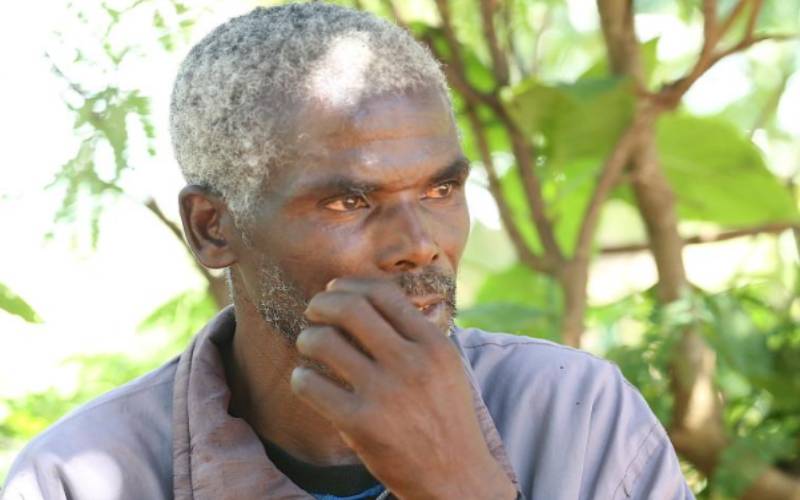×
The Standard e-Paper
Kenya’s Boldest Voice

Masten Wanjala's father, Robert Wanjala, during an interview with The Standard at his Bungoma home on Tuesday, November 9, 2021. [Benjamin Sakwa, Standard]
The father of self-confessed serial killer Masten Wanjala, who was lynched days after escaping from police custody under unclear circumstances, has pleaded with the government to hand him his body for burial.